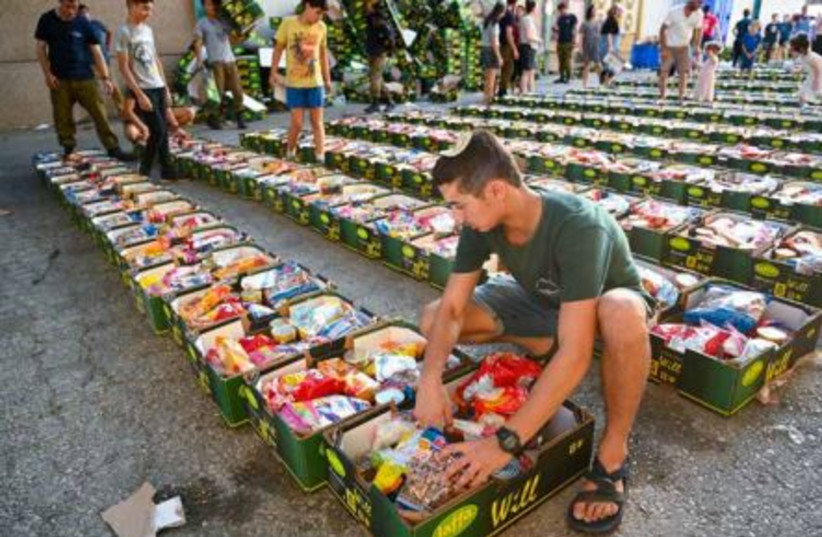Overnight, ad hoc organizations arose. Beginning with private citizens taking up arms to rescue fellow citizens, searching for missing persons, volunteering in agriculture, sending shipments of food, clothes, and medicine, attending funerals, rescuing stranded pets, and representing Israel abroad as I have had to do on Spanish TV.
The vacuum left by a slow to non-functioning government was filled at top speed by civilians. The barbaric attack by Hamas mobilized the haredi community to help with funerals and shiva calls. ZAKA volunteers worked tirelessly to perform the gruesome task of identifying the remains of the victims. Private doctors left their offices to assist in identifying samples of DNA in improvised rabbinate clinics. In a situation where there are only six legal medical doctors in the whole of Israel, the assistance of these private doctors has been invaluable.
Outside the Tel Aviv Museum of Art, relatives of those captured were not left alone for a minute. They have been inundated with offers for help. All kinds of professional volunteers are busy helping. A provisional trauma center with psychologists, psychiatrists, and social workers arose there overnight. It offers them an art wall on which to paint, music therapy, and individual sessions on how to survive their trauma.
According to a report by the Institute for Civil Society at the Hebrew University, more than 1,000 private initiatives sprang up in the first two weeks of war. They offered quick response to a myriad of problems and were able to recruit thousands of volunteers. Nearly half of the Israeli population volunteered. This in addition to the 25,000 non-profit organizations active in Israel on a regular basis.
Hotels and private homes, from the Dead Sea and Eilat to Tel Aviv and Jerusalem, have welcomed the evacuees. Four thousand teachers responded to a request for 400 teachers to teach the children in Eilat’s hotels. Chefs cooked for soldiers. Thousands of women volunteered to do laundry for soldiers and evacuees in their homes. Love of Israel, which motivated many to demonstrate against the Israeli government just a few weeks before, is the same love that drives them to now demonstrate their support of Israel. In only 30 days, UJA raised close to a billion dollars for the evacuees in Israel. Many have come to realize that we may feel at home all over the world as “global citizens,” but the only true home for Jews worldwide is Israel.
One heartwarming tale of mutual responsibility is the following: A young man saved up for his honeymoon for two years. He and his bride flew to Los Angeles and checked into their hotel on October 6. The next day, as soon as they heard of the war, both were on a flight to Israel. He is now fighting in Gaza. A person who heard the interview on the radio offered to pay for their future honeymoon when the war is over.
In these days of chaos and shock, we don’t have the luxury of sinking into depression. It will take years to rehabilitate the security and economic damage caused and the national trauma inflicted on the Israeli soul. The wave of solidarity that has swept over Israeli society is one of these few rays of light. This unprecedented wave of giving doesn’t skip any age, ethnic group, or political affiliation. Ironically, the well-organized protest group Brothers in Arms has been most effective in delivering aid since the first days of the war.
Together we shall overcome, thanks to that spirit of mutual responsibility. Most poignant is the description of Israel’s state of affairs by former Mossad chief Tamir Pardo: “Good people are carrying this country on their shoulders.” ■
Shoshana Tita is a writer and director of TLC of Potomac, Maryland.

